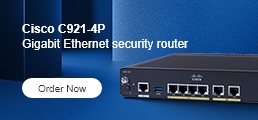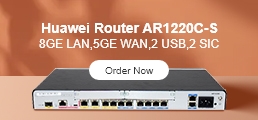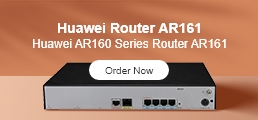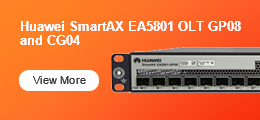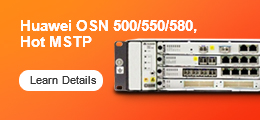Product Overview
AR200 Series routers use the embedded hardware encryption technique and support the voice Digital Signal Processor (DSP). In addition, they support firewall, call processing, voice mailbox, and application program functionalities. The AR200 router family now has eight members: AR151, AR157, AR201, AR206, AR207, AR207V, AR207V-P and AR208E. The appearance and specifications of the eight members are shown in the following table.
Product Highlights
1.Small Size and High Performance
• More applications: Huawei series routers use the dual-core processor that isolates the control plane from the forwarding plane and processes more enterprise applications. Huawei series routers improve user experience for multimedia service customers when streams overlap.
• Higher performance: The AR200 can process various enterprise applications, and its service processing capability is four times that in the industry.
• Greater potential: Huawei series routers provide the capability to migrate services to the 3G and LTE networks.
2.Low Investment with High Returns
• Easy to construct: The AR200 supports plug-and-play, intelligent configuration, and deployment using the USB flash drive. It can function immediately after being installed. Users do not need to configure an IP address manually. The PPP and VPN indicators show the status of corresponding services. The AR200 helps to quickly construct an enterprise IT network.
• Simplified solution: Huawei provides an all-around solution that integrates the routing, switching, voice, security, and wireless services. Customers can customize solutions as required.
• Easy to expand: Huawei series routers provide eight FE ports that connect small enterprises. The two uplink WAN ports implement load balancing and link protection, maximizing the return on investments.
3.Small Product on a Comprehensive Platform
• Maturity and Stableness: The AR200 uses the Huawei VRP operating system and VSP voice platform. In addition, the AR200 uses modularized hardware design, which brings good user experience.
• Low-noise office: Huawei series routers have no fan, which brings low noise and good user experience.
• Secure environment: The AR200's surge-protection capability (6 kV) is thirty times that in the industry. The AR200 can be applied in the harsh environment.
The following table lists the technical specifications of AR200 Series routers.
|
Item |
AR201/AR151 |
AR206 |
AR207/AR157 |
AR207V |
||
|
Hardware |
||||||
|
Forwarding performance |
280 kpps/200 kpps |
280 kpps |
280 kpps/200 kpps |
280 kpps |
280 kpps |
280 kpps |
|
Fixed WAN ports |
1 x FE |
1 x ADSL2+ Annex B |
1 x ADSL2+ Annex A/M |
1 x ADSL2+ Annex A/M |
1 ADSL2+ Annex A/M |
1 x G.SHDSL 8-wire |
|
Fixed Ethernet switching ports |
8 x FE/4 x FE |
8 x FE |
8 x FE/4 x FE |
8 x FE |
8 x FE |
8 x FE |
|
Fixed voice ports |
\ |
\ |
\ |
4 x FXS, 1 x FXO |
4 x FXS+ 1 x FXO |
\ |
|
USB 2.0 ports |
1 |
1 |
1 |
1 |
1 |
1 |
|
Serial auxiliary/ console ports |
1 |
1 |
1 |
1 |
1 |
1 |
|
Memory size (default/ maximum) |
512 MB |
512 MB |
512 MB |
512 MB |
512 MB |
512 MB |
|
Flash memory (default/ maximum) |
512 MB |
512 MB |
512 MB |
512 MB |
512 MB |
512 MB |
|
Maximum power |
24 W |
24 W |
24 W |
36 W |
36 W |
24 W |
|
Power supply (AC) |
100V to 240V |
100V to 240V |
100V to 240V |
100V to 240V |
100V to 240V |
100V to 240V |
|
Frequency |
50/60 Hz |
50/60 Hz |
50/60 Hz |
50/60 Hz |
50/60 Hz |
50/60 Hz |
|
Dimensions (H x W x D) |
44.5 mm x 300 mm x 220 mm (1.75 in. x 11.8 in. x 8.66 in.) |
44.5 mm x 300 mm x 220 mm (1.75 in. x 11.8 in. x 8.66 in.) |
44.5 mm x 300 mm x 220 mm (1.75 in. x 11.8 in. x 8.66 in.) |
44.5 mm x 300 mm x 220 mm (1.75 in. x 11.8 in. x 8.66 in.) |
44.5 mm x 300 mm x 220 mm (1.75 in. x 11.8 in. x 8.66 in.) |
44.5 mm x 300 mm x 220 mm (1.75 in. x 11.8 in. x 8.66 in.) |
|
Operating temperature |
0°C to 40°C |
0°C to 40°C |
0°C to 40°C |
0°C to 40°C |
0°C to 40°C |
0°C to 40°C |
|
Relative humidity |
5% to 90% (non- condensing) |
5% to 90% (non- condensing) |
5% to 90% (non- condensing) |
5% to 90% (non- condensing) |
5% to 90% (non- condensing) |
5% to 90% (non- condensing) |
|
Software |
||||||
|
Voice |
RTP, SIP, SIP AG, IP PBX/TDM PBX, FXO/FXS, VoIP |
|||||
|
LAN |
IEEE 802.1, IEEE 802.3, VLAN management, MAC address management, MSTP, etc. |
|||||
|
IPv4 unicast routing |
Routing policy, static route, RIP, OSPF, IS-IS, BGP |
|||||
|
IPv6 unicast routing |
Routing policy, static route, RIPng, OSPFv3, IS-ISv6, BGP4+ |
|||||
|
Multicast |
IGMP version1/2/3, PIM SM, PIM DM, MSDP |
|||||
|
IGMP snooping version1/2/3 |
||||||
|
VPN |
IPSec VPN, GRE VPN, DMVPN, SSLVPN |
|||||
|
QoS |
Priority mapping, traffic policing (CAR), traffic shaping, congestion avoidance (based on IP precedence/DSCP WRED), congestion management (LAN interface: SP/WRR/SP+WRR; WAN interface: PQ/CBWFQ), MQC (traffic classification, traffic behavior, and traffic policy), H-QoS |
|||||
|
Security |
ACL, firewall, 802.1x authentication, MAC address authentication, web authentication, AAA authentication, RADIUS authentication, HWTACACS authentication, broadcast storm suppression, ARP security, ICMP attack defense, URPF, IP Source Guard, DHCP snooping, CPCAR, blacklist, IP source tracing, PKI |
|||||
|
Management and maintenance |
Upgrade management, device management, web NMS, GTL, SNMP, RMON, NTP, CWMP, Auto- Config, site deployment using USB disk, NetConf |
|||||
By the way, you can check the price of Huawei AR200 Routers.
Learn More:
Configure rate limiting for P2P software download on a Huawei AR router
What is the difference between Huawei S switches and routers?
Do I need to apply for the license again after router version upgrade?
How to configure a user level on an AR router?
How to configure access control on a Huawei AR router?




